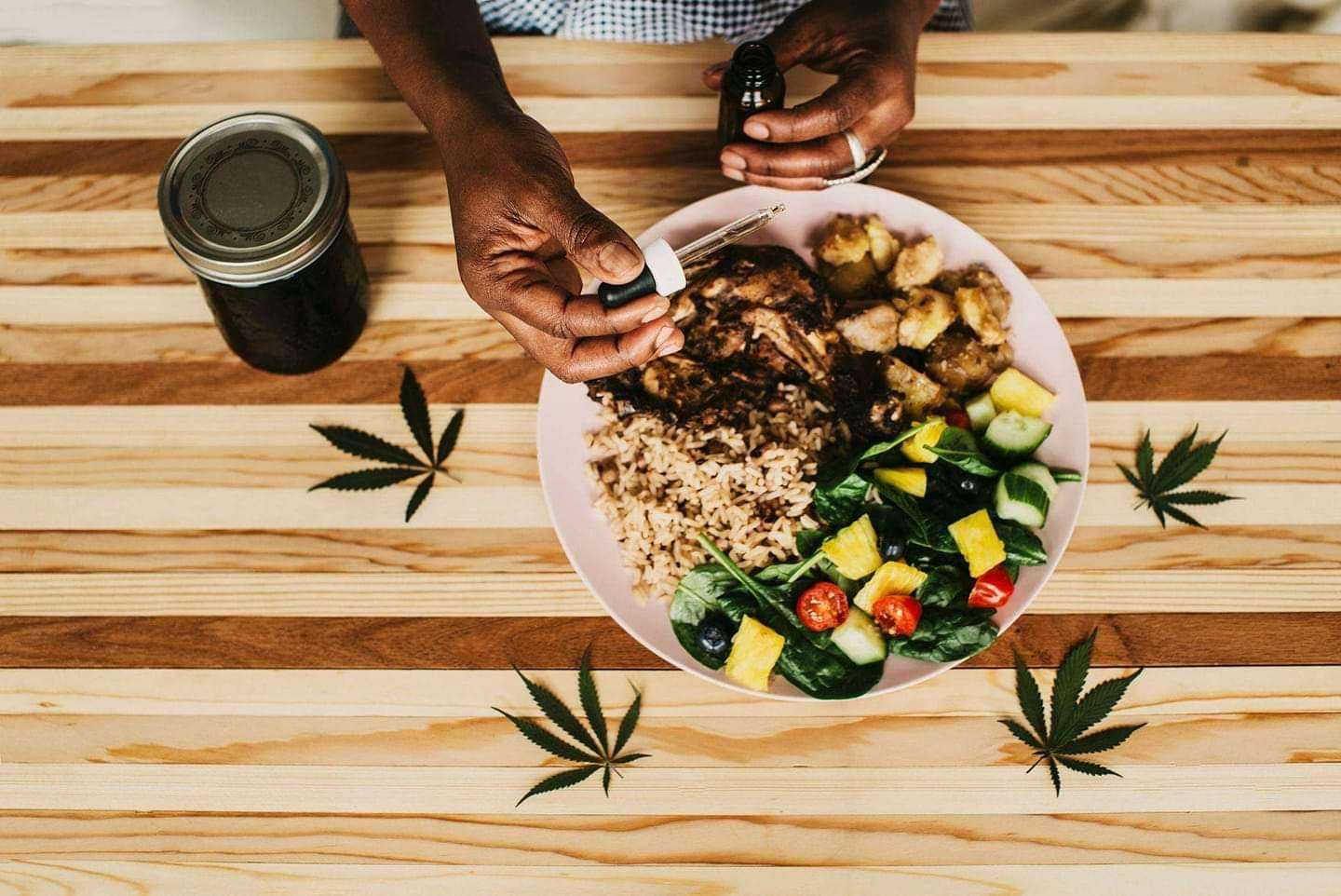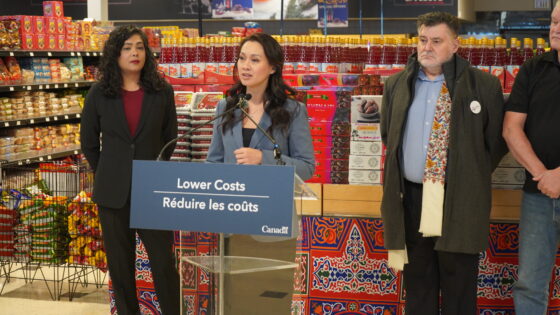on
BY JANIECE CAMPBELL
In October 2020, a policy brief released by the Centre on Drug Policy Evaluation and the University of Toronto that examined race and gender of executives and directors in the Canadian cannabis industry found that black and Indigenous people, as well as women, are very underrepresented in leadership positions across the board.
It was found that cannabis industry leaders are primarily white (84%) and male (86%). Non-white industry leaders are in the minority (6% South Asian, 3% East and Southeast Asian, 2% Indigenous, 2% Arab, 1% Black, and 1% Latinx).
Though the statistics seem bleak, there’s one black woman-owned education and events company on Canada’s west coast that is looking to make their mark on the industry through your taste buds! Necole Hines is the founder of Faded Living in Vancouver, British Columbia, a space she uses to combine her two passions, cooking and cannabis.
“I started Faded Living to normalize cannabis use. On the educational side of things, I offer virtual cooking with cannabis workshops every month. One is “Intro to Cooking with Cannabis” for people who are brand new to the plant. I have another one which is called “Infuse Your Favourite Cooking Oils,” and it’s for people who might have taken the first course or already know a little bit about cooking with cannabis and want to know more about oils. Another thing that I also have is a podcast that comes out every Thursday; Faded Living & Friends. I started that to normalize things through conversation and to show that cannabis entrepreneurs are amazing and normal people.”
A true food connoisseur, Necole used to reside in Calgary, Alberta and had her own Jamaican fusion food business called Wings & Tings. No stranger to incorporating low dosages of cannabis into her food, she often posts her mouth-watering, Caribbean-inspired, THC-infused recipes on Instagram, such as jerk vegetable chili, fried plantain, and scotch bonnet lemonade. She was also recently a panelist at the Womxn, Wellness and Cannabis Conference where she demonstrated how to make a delicious infused spicy guacamole with a refreshing CBD-infused mojito to wash it down.
Necole’s on-and-off journey with cannabis spans over twenty-five years, though she became a medical cannabis patient six years ago. After a rough car accident, she chose to use cannabis for her pain management as opposed to prescribed pills. It was then she realized just how therapeutic the plant could be. Her favourite method of consuming? A good, old-fashioned joint. Though Necole says there are plenty of low-risk ways to reap the benefits of marijuana.
“Whether it was to keep me balanced, or to help me through a dramatic time, or even just to think. It was a form of therapy for me,” she says. “When I smoke, my joints are all cannabis only and I don’t add any tobacco to it, so that for me is one way of doing things a little bit healthier. But the beauty about cannabis itself is that there are so many ways to consume the plant. So therefore, if smoking and vaping just aren’t your thing, you can actually use it on your skin! Let’s say pain is your issue, you can get cannabis-infused topical to use. You can also just have a beverage. The beauty of being in a legalized country is that there are a lot of products on the market that can allow you to incorporate cannabis into your life without the negative effects of smoking.”
The racial gap in the cannabis industry is prevalent in Vancouver, as black people only account for about 1.2% of a population exceeding 2.5 million people. Though the lack of a black population can be the answer to why there aren’t as many black-owned cannabis businesses in the city, Necole believes that the barriers to starting a business and a lack of access to funding plays a major additional role.
“This is an extremely expensive industry to get into. There are a lot of extra hurdles this industry has that others don’t. Opening a bank account in the cannabis industry is a huge hurdle. Although it’s legalized in Canada, a lot of big banks will not deal with you. And even when you do find a bank that will, some of them will charge you these large fees if you apply. I’ve heard banks charging upwards of $5.000 just to apply and that doesn’t necessarily mean that you’ll get approved for the account either,” says Necole.
She continues.
“Everything is just way pricier, especially in Vancouver where to have a business license for a dispensary is a little more than $33,000 a year. Whereas in Calgary, it’s about $387 a year. Just to show that across the country, there’s a disparity in that. Another example is that if I was to open a liquor store here, it would be about $4,000 as opposed to the $33,000 for a cannabis storefront. If our people don’t have that capital or access to money in general, it makes it really hard for us to get in.”
Though there’s a lot of work to be done in terms of inclusivity in order to level the playing field and to create opportunities for the underrepresented, the active industry is evolving every day. Necole’s wish is for the innovative plant to be completely destigmatised and for adults to begin introducing it into their lives in small ways.
“We are very lucky to be the second country in the world to be entirely legalized yet it still feels like there’s so much stigma behind it. They have yet to show a study that somebody has died from cannabis, yet with alcohol we’ve seen so many statistics. I would like to normalize adult cannabis use to the point that it’s just as easy for you to see somebody light up a joint or have a THC-infused beverage like you would see somebody drinking a glass of wine.”
You can follow @FadedLiving on Instagram and head to fadedliving.com to check out the two upcoming workshops they have next weekend; Infuse Your Favourite Cooking Oil and Cooking with Cannabis & Terpenes: Pinene Edition!
Stay in the loop with exclusive news, stories, and insights—delivered straight to your inbox. No fluff, just real content that matters. Sign up today!













